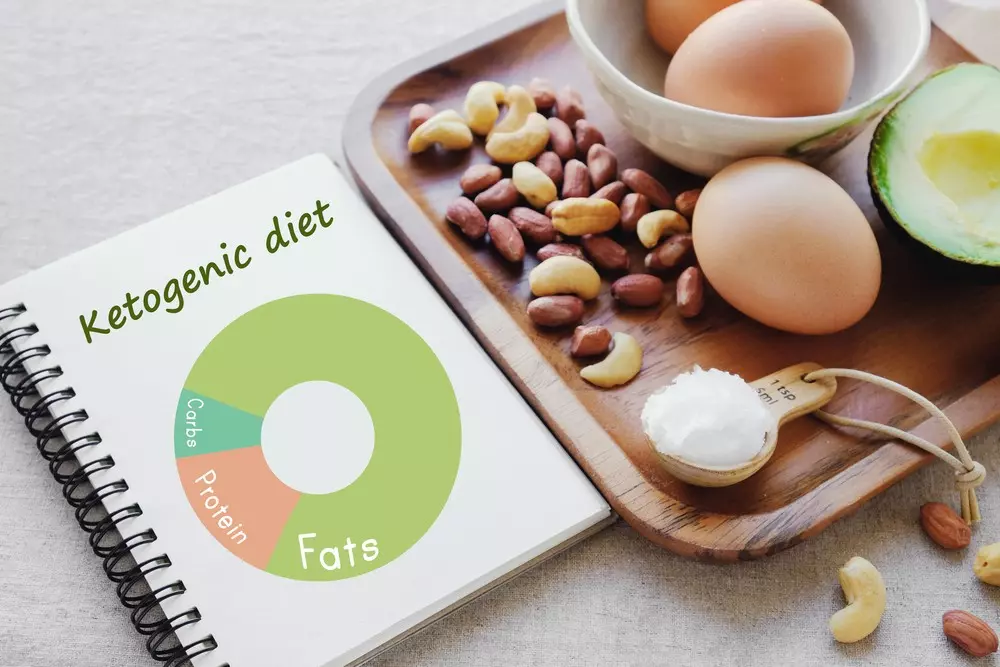
What is the ketogenic diet?
The ketogenic diet, which takes its name from ketone bodies, which are the end products of fat metabolism, is planned in such a way that at least 60% of the daily energy comes from fat sources, aims to bring the body into a metabolic state called ketosis by reducing carbohydrate intake very much, but only if it is used under expert control and for treatment, it is a positive diet. It is a nutritional model with effects.
What does the ketogenic diet do?
As is known, the primary energy source of metabolism is carbohydrates. However, if enough carbohydrates cannot be found, fats and, as a last resort, proteins are used. The ketogenic diet model cuts carbohydrates and replaces them with fat, allowing the body's energy source to become fat.
Why ketogenic diet?
The ketogenic diet is actually a treatment method. It should be applied in controlled stages under expert follow-up and should be terminated when necessary. Neurological diseases such as epilepsy, Alzheimer's, Parkinson's; It has been used in diabetes, insulin resistance, hypertension, metabolic problems such as high blood fats and fasting diets and its healing effects have been proven by many studies.
How does it affect neurological diseases like Alzheimer's?
The main cause of Alzheimer's-like dementia diseases is impaired carbohydrate metabolism in the brain tissue. Also called type 3 diabetes today; With the development of insulin resistance in the brain cells, the brain cells cannot use the glucose they use as an energy source into the cell and cannot produce energy. While the brain tissue is damaged by the pressure of glucose, which cannot enter the cells, to the tissues; Tissues that cannot produce energy cannot repair their damage. As a result, dementia diseases, which we think are the rules of aging, begin to show themselves. The role of the ketogenic diet in this treatment is to eliminate glucose and enable brain cells to produce energy from ketone bodies. Thus, the brain tissue finds the opportunity to repair itself in a clean way and by producing a high amount of energy. The ketogenic diet list used for this type of treatment usually consists of 90% fat.
Does keto diet affect metabolism?
The improvement of the metabolic syndrome of the ketogenic diet is mainly due to the fact that it significantly reduces the amount of insulin in the blood. So the main problem here is insulin resistance. Insulin has a very important place in energy metabolism; trigger each other. The totality of these problems is called the metabolic syndrome, and metabolic syndrome can be significantly improved with lifestyle changes. The use of the ketogenic diet as a treatment method in metabolic syndrome is also due to the fact that it reduces the amount of insulin in the blood by eliminating carbohydrates. Thus, the difficulty of diabetes patients in losing weight disappears with the ketogenic diet, and the same amount of weight loss can be observed with the same amount of effort as a healthy person.
20 Most Recommended foods to consume on a Ketogenic Diet
-
Butter
- Coconut oil
- Clarified butter (ghee)
- Black cumin oil
- MCT oil and MCT powder
- Avocado
- Slide
- Oilseeds such as walnuts, hazelnuts, almonds, pumpkin seeds
- Other natural oils
-
Low Carbohydrate Vegetables
- all leafy vegetables-greens
- Cucumbers
- Broccoli
- Cauliflower
- Cabbage
- Zucchini
- Mushrooms
- Green peppers
- Okra
- Lemons
-
Other foods to eat on Keto Diet
- all spices
- Sugar free sauces
- Herbal sweeteners
- Organic berries like raspberries, blueberries, strawberries, and cranberries (some after you adjust to ketosis)
